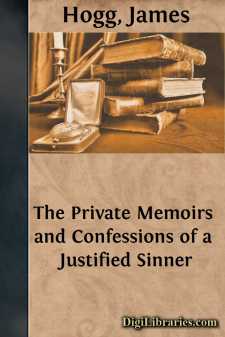Categories
- Antiques & Collectibles 13
- Architecture 36
- Art 48
- Bibles 22
- Biography & Autobiography 813
- Body, Mind & Spirit 142
- Business & Economics 28
- Children's Books 17
- Children's Fiction 14
- Computers 4
- Cooking 94
- Crafts & Hobbies 4
- Drama 346
- Education 46
- Family & Relationships 57
- Fiction 11829
- Games 19
- Gardening 17
- Health & Fitness 34
- History 1377
- House & Home 1
- Humor 147
- Juvenile Fiction 1873
- Juvenile Nonfiction 202
- Language Arts & Disciplines 88
- Law 16
- Literary Collections 686
- Literary Criticism 179
- Mathematics 13
- Medical 41
- Music 40
- Nature 179
- Non-Classifiable 1768
- Performing Arts 7
- Periodicals 1453
- Philosophy 64
- Photography 2
- Poetry 896
- Political Science 203
- Psychology 42
- Reference 154
- Religion 513
- Science 126
- Self-Help 84
- Social Science 81
- Sports & Recreation 34
- Study Aids 3
- Technology & Engineering 59
- Transportation 23
- Travel 463
- True Crime 29
The Private Memoirs and Confessions of a Justified Sinner
by: James Hogg
Categories:
Description:
Excerpt
THE EDITOR'S NARRATIVE
It appears from tradition, as well as some parish registers still extant, that the lands of Dalcastle (or Dalchastel, as it is often spelled) were possessed by a family of the name of Colwan, about one hundred and fifty years ago, and for at least a century previous to that period. That family was supposed to have been a branch of the ancient family of Colquhoun, and it is certain that from it spring the Cowans that spread towards the Border. I find that, in the year 1687, George Colwan succeeded his uncle of the same name, in the lands of Dalchastel and Balgrennan; and, this being all I can gather of the family from history, to tradition I must appeal for the remainder of the motley adventures of that house. But, of the matter furnished by the latter of these powerful monitors, I have no reason to complain: It has been handed down to the world in unlimited abundance; and I am certain that, in recording the hideous events which follow, I am only relating to the greater part of the inhabitants of at least four counties of Scotland matters of which they were before perfectly well informed.
This George was a rich man, or supposed to be so, and was married, when considerably advanced in life, to the sole heiress and reputed daughter of a Baillie Orde, of Glasgow. This proved a conjunction anything but agreeable to the parties contracting. It is well known that the Reformation principles had long before that time taken a powerful hold of the hearts and affections of the people of Scotland, although the feeling was by no means general, or in equal degrees; and it so happened that this married couple felt completely at variance on the subject. Granting it to have been so, one would have thought that the laird, owing to his retiring situation, would have been the one that inclined to the stern doctrines of the reformers; and that the young and gay dame from the city would have adhered to the free principles cherished by the court party, and indulged in rather to extremity, in opposition to their severe and carping contemporaries.
The contrary, however, happened to be the case. The laird was what his country neighbours called "a droll, careless chap", with a very limited proportion of the fear of God in his heart, and very nearly as little of the fear of man. The laird had not intentionally wronged or offended either of the parties, and perceived not the necessity of deprecating their vengeance. He had hitherto believed that he was living in most cordial terms with the greater part of the inhabitants of the earth, and with the powers above in particular: but woe be unto him if he was not soon convinced of the fallacy of such damning security! for his lady was the most severe and gloomy of all bigots to the principles of the Reformation. Hers were not the tenets of the great reformers, but theirs mightily overstrained and deformed. Theirs was an unguent hard to be swallowed; but hers was that unguent embittered and overheated until nature could not longer bear it....


